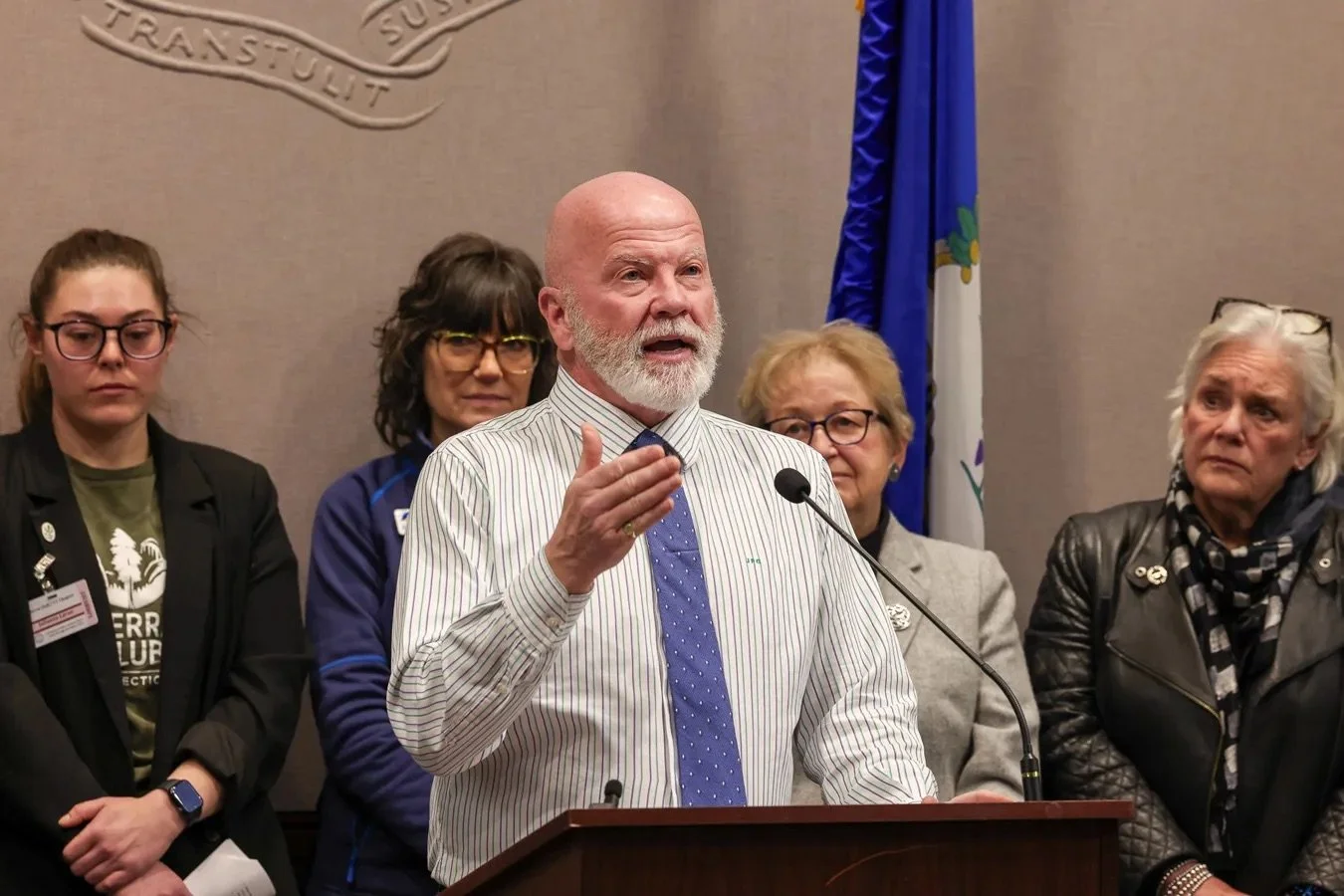Ditch Pesticides
Rep. Joseph Gresko, D-Bridgeport, speaks during a news conference on rodenticides Wednesday, Feb. 19, 2025, at the Legislative Office Building in Hartford. Gresko advocated for legislation to ban second-generation anticoagulant rodenticides. Credit: Mia Palazzo / CTNewsJunkie
Connecticut is considering legislation to ban rodenticides to protect wildlife and children. Here’s why you should consider banning pesticides in your garden and yard, too.
Many pesticides harm pollinators, other beneficial insects, aquatic life, and human health.
Rather than relying on pesticides, try focusing on prevention and increasing biodiversity and creating habitat for natural enemies. At the very least, mimic predators (faux snakes, owls, or letting your dogs urinate around the perimeter of your garden) or trick prey into thinking a predator could be hiding around the corner, with limited lines of site. Ohio State University also notes that Rosemary Oil is an insecticide with low toxicity and no know side effects to wildlife.
Look for organic or naturally grown plants and seeds that that do not have pesticides sprayed on them. Neonicotinoid seed coatings don’t increase yield and are toxic to insects (7,000 times more so than DDT, an insecticide banned in the US in the 70s).
Some of my favorite places to buy plants and seeds include: Gilbertie’s in Westport, Connecticut, High Mowing Organic Seeds in Vermont, and Hudson Valley Seed Co in New York.

